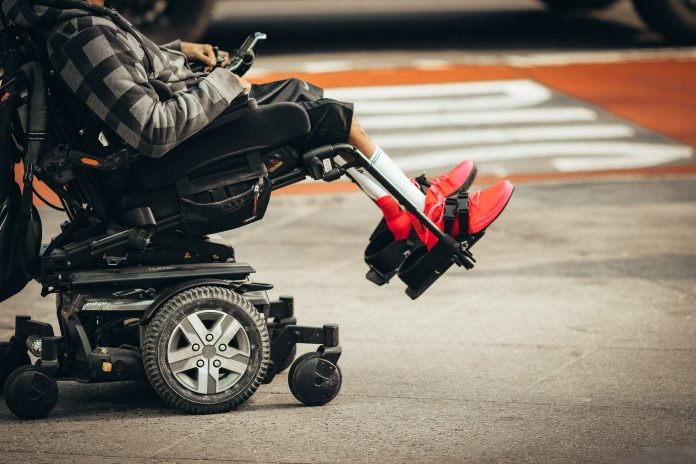Families of disabled children in Turkey said they faced discrimination on a daily basis and that their children did not have access to proper education, Voice of America (VOA) Turkish service reported.
On the occasion of World Children’s Day, children’s associations in western Izmir province organized activities for disabled children. Families that attended the event said their biggest wish was for their children to attend school like their peers.
Selma İskeçeli, the mother of an 18-year-old boy with autism, said her son had not been able to attend school regularly because other parents objected him being in the same classroom as their children.
“According to regulations, disabled children can attend school with non-disabled children. But many parents do not want this, and our children are excluded from school. My son, Kaan, is very gifted in athletics, but he needs special attention because he does not respond to instructions. However, we were never able to get the necessary training because he was always excluded by other children and parents in his school,” she explained.
Fatma Yiğit, the mother of a mentally challenged boy, shared similar experiences. Although her son graduated from junior high school, he cannot even properly read or write. “We took him to a specialist who said it was very unusual for the child not to be able to read. The specialist said it was obvious my son had not received any attention or care in school,” Yiğit said.
Families also explained that their children needed care, therapy and specialized attention outside of school, but said costs for such care were extremely high.
Şengül Tekfidan, the mother of a 5-year-old boy with Down Syndrome, said they could not afford physical therapy for their son. “We are only reimbursed for two hours of physical therapy every week. But two hours is not enough because our son needs at least eight hours including swimming and sports classes,” she said. “I feel like we are second-class citizens. Our children cannot attend school like non-disabled children and do not have access to the many opportunities that are provided for them.”
Like other parents, she said the biggest obstacle hindering disabled children’s access to school was the parents of other children. “There is a lot of prejudice, and in most cases, adults need to be educated first,” she added.
Hürriyet İyidoğan, from the Pure Hearts Down Syndrome Association (Temiz Kalpler Down Sendromu Derneği), said although regulations allowed the education of disabled and non-disabled children together, schools were underequipped to accommodate disabled children.
“Schools need support from specialists, but the current situation is very different,” she said. “On top of that, teachers, school administrators and parents are very judgmental towards disabled children. Instead of giving them more attention and care, teachers just neglect those children in class.”
İyidoğan said it was very important that families receive financial support for their children’s physical and mental care. She emphasized that disabled children existed and had the right to access proper education and healthcare and that it is up to authorities to make sure they were supported.
A report published in 2021 revealed that disabled people are among the most discriminated against in Turkey. Many disabilities such as autism, learning disabilities, blindness and mental illness are also used as insults, creating the impression that neurodiverse people are “lesser humans” and are the subject of ridicule.
About 8.5 million people in Turkey have mental or physical disabilities. According to reports, many of those people are marginalized as a result of social attitudes and official policies.









